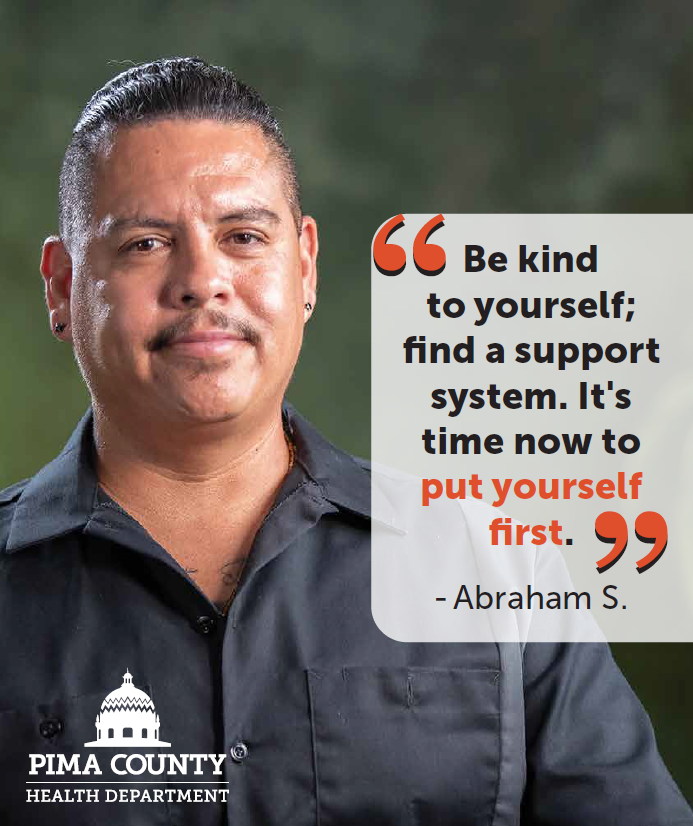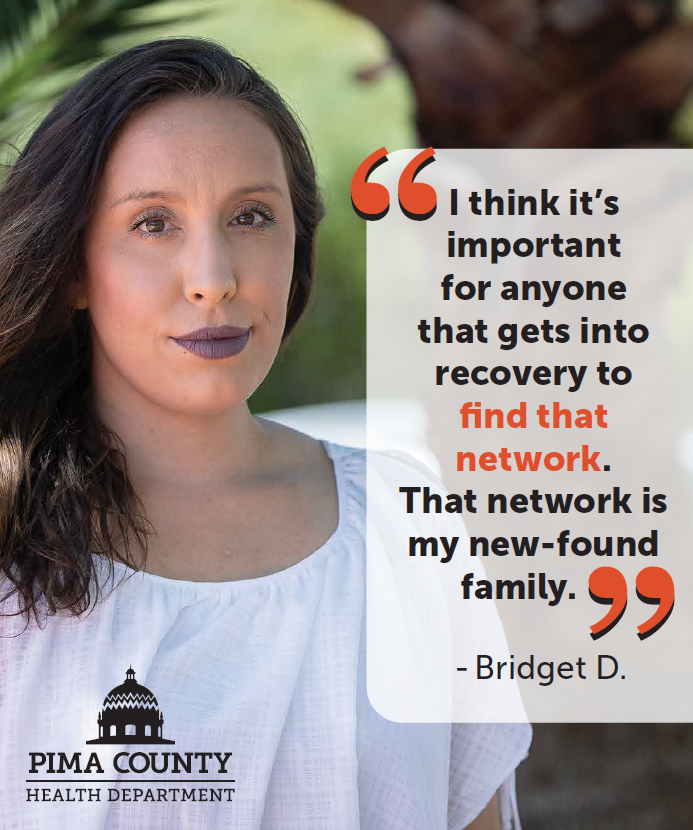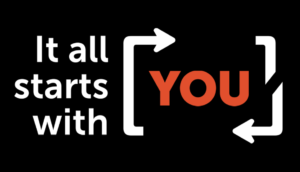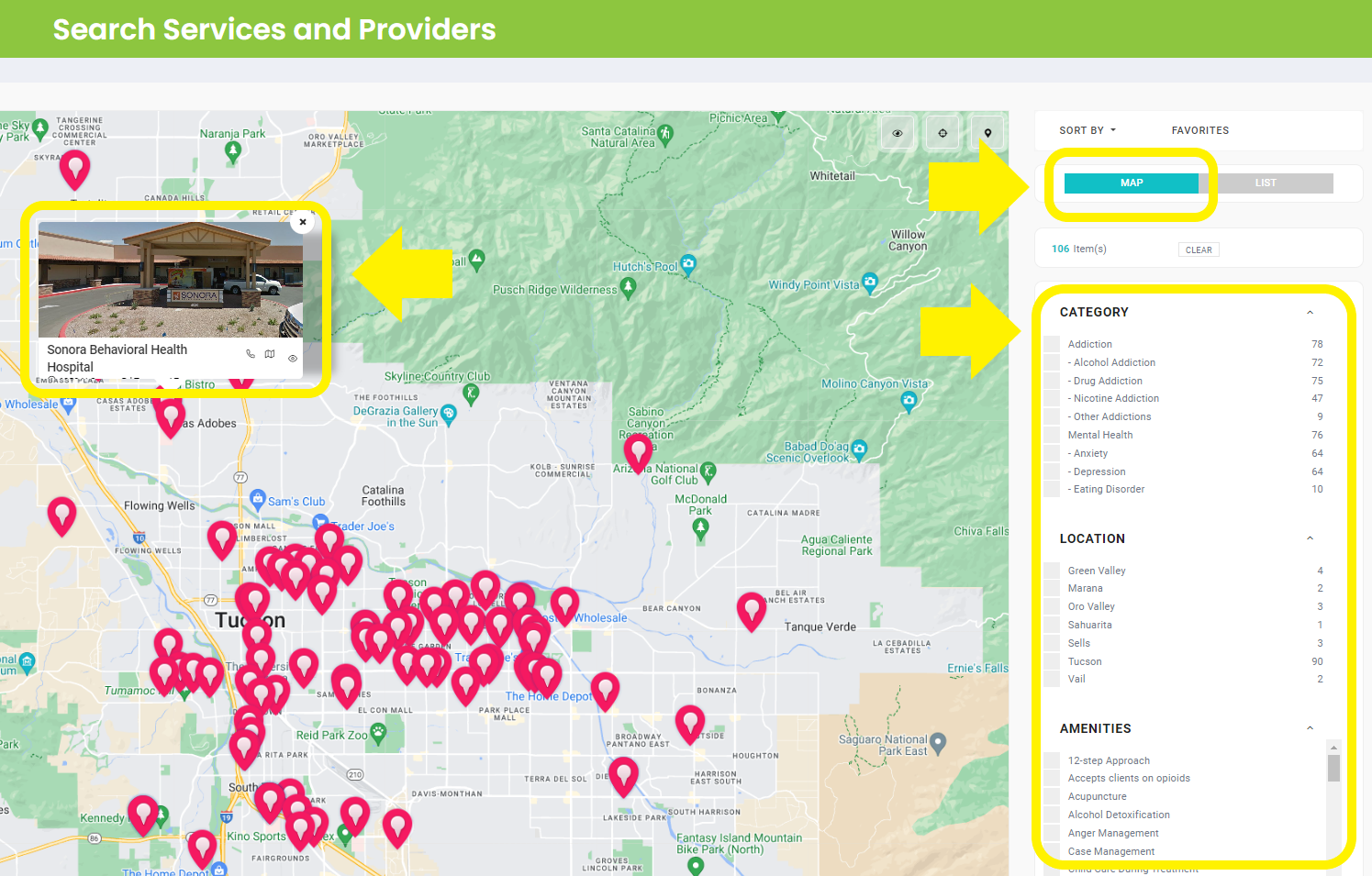


Asking for help takes courage!

Click each section to learn more about different aspects and available services to help you in your recovery. Use what you need to achieve your goals. Everyone’s needs are unique to each person and recovery will not look the same for everyone.
RECOVERY: "A process of change through which individuals improve their health and wellness, live a self-directed life, and strive to reach their full potential."
(Substance Abuse and Mental Health Services Administration, 2014)
Not everyone who uses drugs has a substance use disorder, but repeated use of drugs and alcohol can lead to a substance use disorder. When substances are used, the brain’s reward system is activated which reinforces the behavior. With severe or long-term substance use, the brain rewires the reward system, contributing to the addiction cycle which includes using, withdrawing, and craving substances. The Diagnostic and Statistical Manual of Mental Disorders, Fifth Edition (DSM-V), defines a substance use disorder as a pattern of various symptoms that indicates that a person is continuing to use substances despite significant problems related to substance use. The various symptoms cover these 11 criteria:
- – Taking the substance in larger amounts and/or for longer periods of time
- – Wanting to cut down or stop substance use, but feeling unable to do so
- – Spending a lot of time getting and using the substance, and recovering from its effects
- – Cravings and urges to use the substance
- – Substance use is interfering with your work, home, or school life
- – Substance use is interfering and causing social conflicts (family, significant other, friends, etc.)
- – Giving up important activities (social, hobbies, and/or work-related) because of substance use
- – Being exposed to dangerous, unsafe, or harmful situations while using substances
- – Continuing to use despite having a physical or psychological problem that may be worsened or triggered by substance use
- – Developing a tolerance to the substance – needing more of the substance to get the effect you want
- – Developing symptoms of withdrawal when use is decreased or stopped
If you have more than two or three symptoms, you may have a substance use disorder. Depending on the severity of the substance use disorder (mild, moderate, or severe), healthcare providers may recommend different treatment options to address your concerns.
Recognizing that your substance use has a negative impact in your life is often the first step to recovery. While there are different reasons why someone uses substances, many people do so to cope with stress, difficult emotions, and physical pain, while other may use to increase performance and productivity. Unfortunately, this can have a destructive impact physically, financially, and socially. When done in a healthy way, coping skills can help a person manage difficult situations. This is why successful long-term recovery involves relearning healthy and positive coping skills to prevent continued substance use.
Examples of healthy coping skills include:
- – Keeping busy with activities not related to substance use
- – Practicing a hobby (sports, art, music, etc.)
- – Journaling
- – Taking a walk
- – Exercising
- – Reading a book
- – Volunteer work or employment, if able
- – Spending time with or calling a loved one
- – Self-care activities (i.e. taking a warm bath, having tea, deep breathing)
- – Attending a community support group
There are various treatment options available to help you sustain long-term recovery goals, such as counseling, therapy, and medications.
Treatment is available. You can use Pima Helpline’s extensive inventory of service providers to find services that fit your needs:
CLICK HERE TO SEARCH FOR TREATMENT PROVIDERS!
Tips for utilizing Pima Helpline:
1. Filter by “MAP” to see all the agencies on a map to find one closest to you
2. Utilize the various categories to find specific services, locations, and features
3. Click on the programs to read a more detailed description of the services provided

Other resources:
- – Visit your insurance company’s website or call to find covered providers:
- AHCCCS – Arizona Complete Health: CLICK HERE TO FIND A PROVIDER (AzCH)
- AHCCCS – Banner University Family Care: CLICK HERE TO FIND A PROVIDER (Banner UFC)
- AHCCCS – United Healthcare Community Plan: CLICK HERE TO FIND A PROVIDER (UHC Community)
- AHCCCS – American Indian Health Program: 1-800-334-5283
Any medical and behavioral treatment will require insurance and/or other grant funding options. There are free community support options, such as support groups and crisis lines, that you can use as a stepping stone to professional support services. There are free outreach services that community-based organizations and harm reduction agencies offer to provide education, resources, and assistance to get connected to substance use treatment services, including:
- – HOPE Inc’s Substance Use Outreach Team: 520-639-7039 or tucsonoutreach@hopearizona.org
- – Pima County Health Department’s Overdose Prevention Outreach: 520-724-7470 (Option 2) or CMHAreferrals@pima.gov
- – CLICK HERE FOR PIMA COUNTY HARM REDUCTION AGENCIES
For specific insurance questions for individuals who are American Indian/Alaska Native, please CLICK HERE.
WHAT IS AHCCCS? SHOULD I HAVE IT?
AHCCCS stands for the Arizona Health Care Cost Containment System and is Arizona’s public Medicaid program that pays medical expenses for people with low income. Coverage is provided for many medical services, including substance use and mental health services.
For more easy-to-read information about AHCCCS: CLICK HERE FOR MORE INFO FROM DB101
To start your application process, CLICK HERE TO START YOUR AHCCCS APPLICATION
Currently, there are four AHCCCS health plans in Pima County:
- – Arizona Complete Health
- – Banner University Family Care
- – United Healthcare Community Plan
- – American Indian Health Plan
CLICK HERE TO REVIEW RANGE OF SERVICES COVERED BY AHCCCS
These health plans are not contracted with all treatment providers, so it is important to check with the health providers or the health plan directly. If you are interested in receiving services from a specific provider who is not contracted with your health insurance plan, you may request to switch your health plan. If you recently just moved to Pima county, you can apply for AHCCCS or request to switch plans to one that serves Pima County.
CLICK HERE TO MORE INFORMATION ON ALL AHCCCS HEALTH
PLANS.
I HAVE HEALTH INSURANCE THROUGH MY EMPLOYER OR I PURCHASED IT:
Your health insurance through your employer or the Affordable Care Act will most likely cover behavioral health services due to the Mental Health Parity Law which passed in 2008. This law requires the coverage of mental health and substance use treatment services to be comparable to coverage for physical health services. Keep in mind, there are differences in services covered and there may be doctors that are “in-network” or “out-of-network.” To find out what services are covered and which providers are “in-network”, you can:
- – Visit your insurance account online and find providers covered in your plan
- – Call your insurance provider (the number is usually located on the back of your insurance card)
- – Ask your doctor’s office or medical facility if they are contracted with your insurance
- – Check in with your employer’s human resources department for navigation assistance
I DO NOT HAVE INSURANCE OR MY INSURANCE DOESN’T COVER SUBSTANCE USE TREATMENT SERVICES:
In Arizona, there are a variety of agencies that have access to grant funded resources that can help you receive substance use treatment even if you are uninsured or under insured. Grant funded programs can be limited in capacity and some may prioritize services based on the following categories:
- – Pregnant women/teenagers who use drugs by injection
- – Pregnant women/teenagers who use substances
- – Other members who use drugs by injection
- – Substance using women/teenagers with dependent children and their families, including women who are attempting to regain custody of their children
- – All other members with a substance use disorder, as funding is available.
When you start services, you can expect an “intake” where someone will ask about your concerns, history, and goals for treatment. The intake appointment usually lasts 1 to 3 hours. They will work with you to develop an individualized treatment plan and can help coordinate your next appointments. A treatment plan incorporates your personal goals as a guide for your treatment. This treatment plan is usually completed once a year to reassess your progress and any changes to your current goals.
A case manager will then be assigned to you typically within a week. A case manager is a collaborative healthcare professional who support, advocate, guide, and coordinate your medical care. Once assigned, they will be your primary point-of-contact for care to help with referrals and resources to other support options.
If you need medications, both for psychiatric or substance use disorders, be aware that you will need a separate nursing assessment and doctor evaluation before starting medications. This can add additional time to your initial intake appointment or another appointment will need to be scheduled to be seen by medical providers.
Detoxification (detox) is often the first step in the recovery from addiction. Detox is the process where the body clears out alcohol and/or substances after stopping use. Using substances can change the body’s chemistry, and in long-term use, the body depends on the substance. After reducing or stopping substance use, the body can enter withdrawal causing symptoms that are often uncomfortable, painful, and stressful. The intensity of withdrawal symptoms depends on how long, how much, how often, and what type of substances were used.
Medical detox happens under supervision at a medical facility. Some examples in Pima County include Community Bridges Inc., Buena Vista Recovery, or any emergency room. In these facilities, medications and other treatments may be provided to help with withdrawal.
You should consider medical detox if you:
- – Have a high tolerance to a substance and/or intense cravings
- – Have tried to quit or reduce your use many times, and it hasn’t worked
- – Have suicidal/homicidal thoughts or rapid mood changes
- – Have other medical conditions, such as diabetes, heart problems, hypertension, or are pregnant
- – Feel like you can’t do it alone and/or don’t have social support
Medical detox starts with a physical and psychiatric exam to assist in the development of a treatment plan. For those interested in starting Medications for Opioid Use Disorder (MOUD) (such as methadone, buprenorphine, and naltrexone), medical detox facilities can help link you to agencies that provide those medications.
Residential treatment is a specialized inpatient program to address substance use and mental health concerns. Individuals stay in a facility with 24-hour supervision from medical and behavioral health professionals. The length of treatment depends on individual needs, but insurance will typically cover stays from 30 to 90 days. Prior to going, you will need to be assessed and referred for residential treatment. Assessments can be done in detox or with a case manager at other behavioral health agencies. Some examples of residential treatment facilities in Pima County include Community Bridges Inc., America’s Rehab Campus, and La Frontera Center’s Casa de Vida.
Residential treatment offers a structured environment that gives the opportunity to identify and manage triggers for substance use, build healthy coping skills, address past traumas, and improve relationships. Residential treatment includes attending group sessions with peers, individualized time with behavioral health professionals, and participation in other activities, such as yoga, walking, art, etc. During and after treatment, staff can help individuals who need support with housing or employment. They can also assist with other appointments, such as to your primary care or behavioral health provider.
While inpatient treatment usually refers to in-hospital or 24 hour supervised programs, outpatient programs can be thought of as “part-time” programs where you don’t live in the facility. Outpatient programs offer services such as case management, therapy, peer groups, and medication from behavioral health providers. Some examples of outpatient providers in Pima County include COPE Community Services, Community Medical Services, and CODAC.
Intensive outpatient programs (commonly referred to as “IOP”) are like outpatient programs but require more frequent group sessions and/or therapy sessions. IOP is recommended for people who are transitioning out of residential treatment or may need more professional support.
The Food and Drug Administration has approved several medications to treat various types of substance dependence to help relieve withdrawal symptoms and cravings. Just like medications are prescribed to treat high blood pressure, medications for drug dependency are lifesaving treatment tools. Medications for Opioid Use Disorder (MOUD) are also referred to as Medication Assisted Treatment (MAT) and Medication Assisted Recovery (MAR). These medications are evidenced-based treatment options that help sustain recovery and are most effective when combined with counseling and other behavioral therapies. Examples of providers in Pima County include Community Partners Inc, La Frontera Center, and Etano Center.
MOUD includes: | MOUD has been shown to: |
|
|
These medications come in different forms and have different requirements. CLICK
HERE TO LEARN MORE ABOUT EACH MEDICATION
If someone is not taking opioids now but may be at risk of using them again, they may be a good candidate for MOUD. MOUD is ideal for people whose tolerance to opioids has gone down after a period without using them, regardless of the reason. When someone goes back to using substances, they may take the same amount as before, but their body won’t be used to it, increasing the chances of an overdose. These circumstances may be a good time to start MOUD even though that person is not currently taking opioids.
Natural Supports are those we have a relationship with in our daily lives, such as a friend, family member, roommate, mentor, or even someone you know at a coffee shop. Recovery from substance use disorder can be isolating and lonely, so building natural support systems can be extremely beneficial. Whether it is rebuilding old connections or forming new ones, social support can make a positive impact on recovery.
Support Groups are a great place to start in building your natural support system. You can meet a lot of people and mentors who have been through or are going through similar journeys. There are many types of support groups depending on the circumstance, such as cancer survivor or grief and loss groups. For addiction and substance use disorder, 12 step programs are the most common which center on a set of principles to help people overcome substance use through actionable steps. The most well-known, group-based, 12 step programs are:
- – Narcotics Anonymous (NA): https://www.natucson.org/index.php
- – Alcoholics Anonymous (AA): https://aatucson.org/
Both AA and NA have spiritual components, which can be applied to any spiritual or religious faith. For those not identifying with a faith, these non-spiritual 12 step programs may be an alternative:
- – SMART Recovery: https://www.smartrecovery.org/
- – LifeRing Secular Recovery: https://lifering.org/ (Online only, no in-person meetings available in Pima County)
Support groups and 12 step programs can be helpful, but building your natural support system doesn’t have to revolve around substance use disorders. There are groups related to hobbies (sports, art, music, etc.) and free community events that you can attend to begin building a support system.
- – Local and free events/services/training opportunities at the Pima County libraries: https://pima.bibliocommons.com/v2/events
- – Groups for runners at the Southern Arizona Roadrunners: https://runsar.org/running-groups/
- – Classes and programs at City of Tucson Parks: https://www.tucsonaz.gov/parks/classes-and-programs
- – Classes and programs with the Pima County Natural Resources, Parks & Recreation: https://anc.apm.activecommunities.com/nrpr/home?onlineSiteId=0&from_original_cui=true
There are different ways to reduce the negative consequences associated with drug use and lower the risk of an overdose. This is called Harm Reduction. There are agencies are dedicated to harm reduction and provide sterile items (syringes, pipes, etc.) for safer use, opioid overdose reversal medication (naloxone), education on the impact of drugs, and peer support.
By making safer choices to reduce the harmful consequences of drug use, you are actively working towards recovery.
CLICK HERE TO LEARN MORE ABOUT HARM REDUCTION AND LOCAL AGENCIES IN PIMA COUNTY!
If there is a medical emergency, call 911.
Call 911 when: | Signs of an Overdose: |
|
|
If there is a non-life-threatening mental health crisis, call 988.
Crisis may look different for each person. Anyone can have a mental health crisis that is impacting their ability to function. A mental health crisis can be caused by stressful events, such as losing a job, a breakup, a death in the family, trauma, or stress from poverty. You may be experiencing a crisis if you are experiencing:
- – Rapid mood swings
- – Agitation
- – Aggressive behavior
- – Confused thinking or irrational thoughts
- – Feelings to hurt yourself or hurt others
- – Withdrawing from usual social activities
- – Hallucinations, delusions, or paranoia
- – Extreme changes in your diet
- – Losing touch with reality
If you feel like you are experiencing a mental health crisis, call 988. For other available crisis lines nationally or in Pima County, you can use our crisis reference guide: https://pimahelpline.org/247-hotlines/





